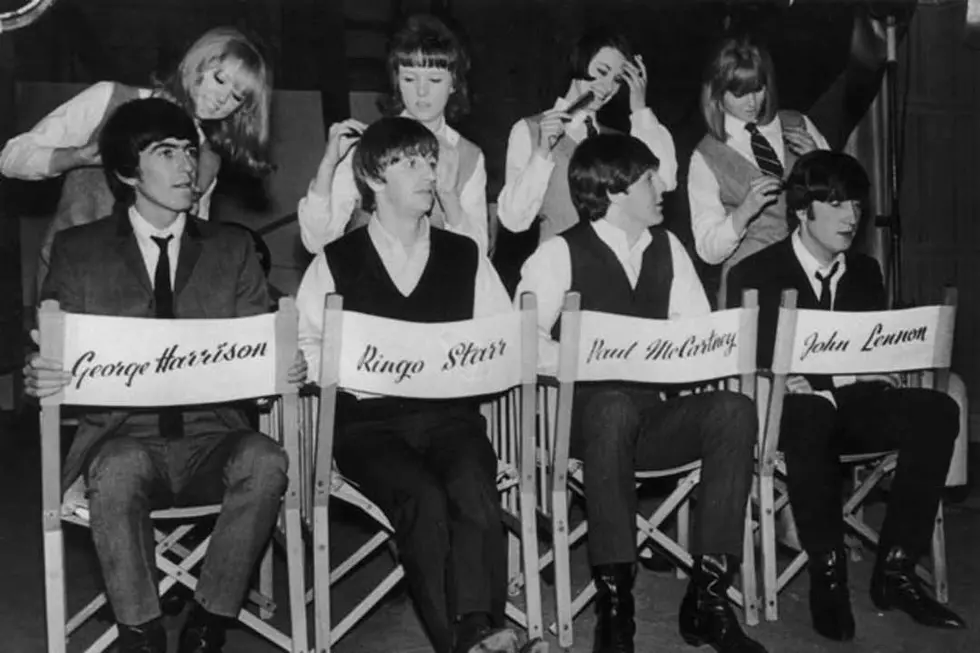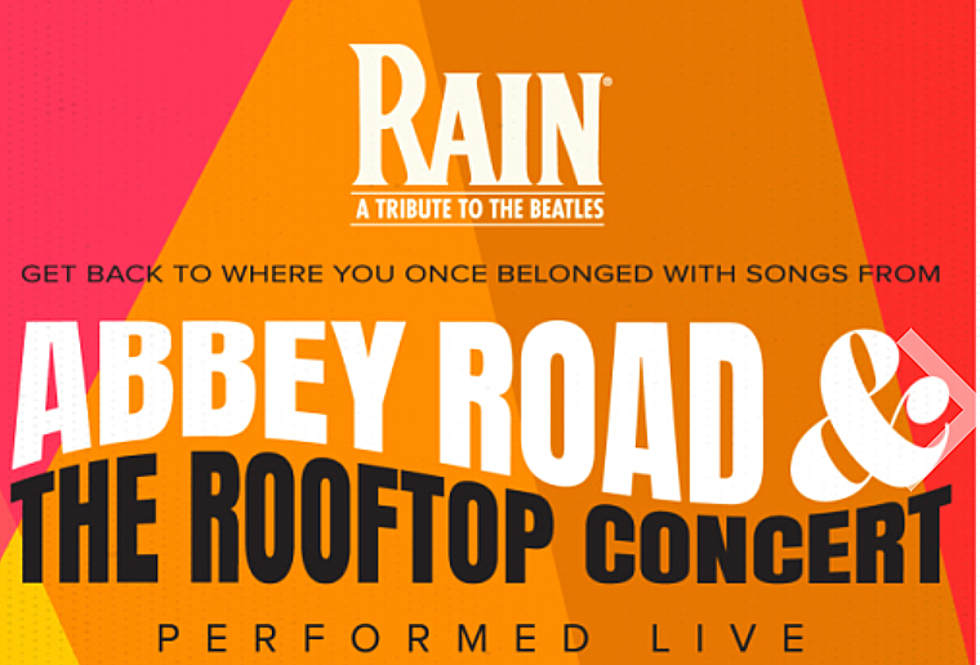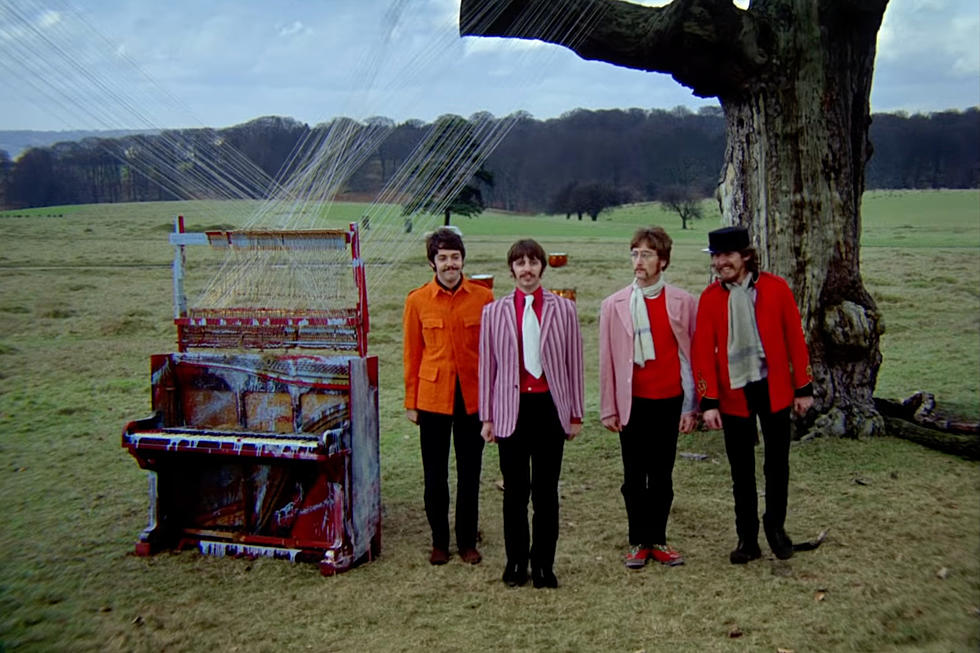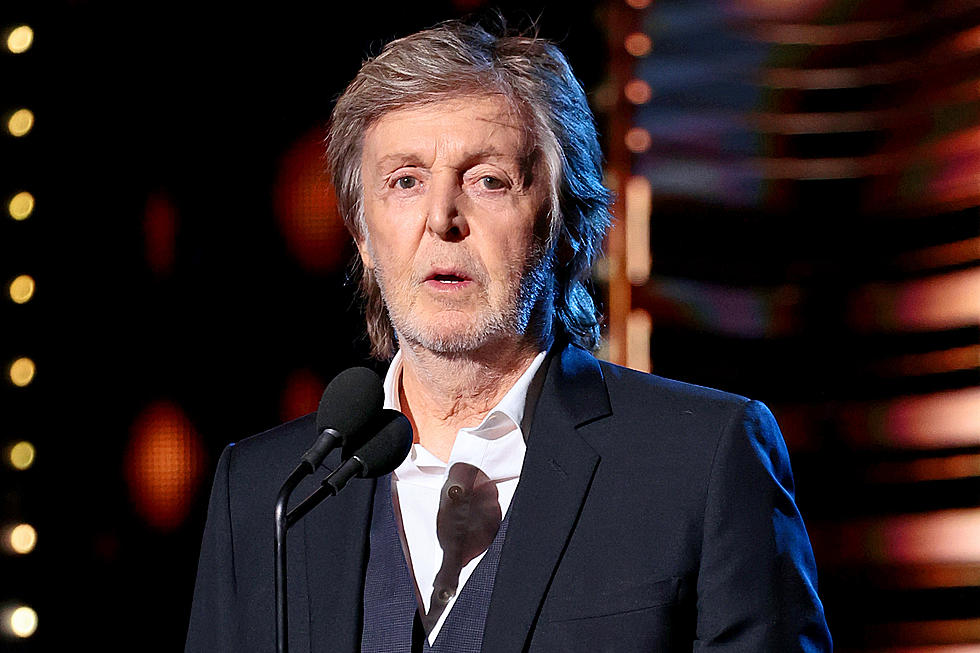
When the Beatles Began Filming ‘A Hard Day’s Night’
The Beatles had barely any time to reflect on their history-making first journey to America before moving on to the next project. Shooting began on their first movie, A Hard Day’s Night, on March 2, 1964 about a week after returning to England.
Filming got underway at London’s Marleybone Station (not Paddington, as often reported) with the opening sequence, where the boys avoid packs of screaming girls as the title song plays. Unlike most movies, A Hard Day’s Night was more or less shot in order, and the next few days were spent on a train going back and forth to Minehead, Somerset in southwestern England. It was during these early days that George Harrison met Pattie Boyd, whom he would marry two years later.
From almost the moment they broke in England, the Beatles were receiving offers to appear in films. But the scripts they were getting sent were usually no good and/or they weren’t given the opportunity to sing their own songs. They were familiar with all the Elvis Presley and Cliff Richard movies, and wanted something more with a bit more quality than had previously been on display -- with one notable exception.
“We’d loved The Girl Can’t Help It, and we knew that you could make a rock n’ roll film,” Paul McCartney said in Anthology. “We’d seen these little American productions and, although they were low budget and not very good, they did have music and we always went to see them.”
Eventually, they chose Dick Lester, an American who had moved to England in the '50s, to direct the movie. They had been fans of his 11-minute short, The Running, Jumping & Standing Still Film, which starred Peter Sellers and Spike Milligan of the Goons, whom they adored. Lester brought in Alun Owen, a playwright from Liverpool who naturally understood the Liverpudlian idioms and accent, to write the script.
Owen, who was nominated for an Academy Award for his screenplay, traveled with the Beatles on tour, getting a knack for their sense of humor and -- more importantly, given that they weren’t actors -- their individual personalities. What he also noticed was that they had already become trapped by stardom, unable to go anywhere without being mobbed by girls. Up against an establishment that treated them with disdain and condescension, the Beatles dealt with it through mockery.
“Alun picked up lots of little things about us,” McCartney later noted about Owen. “Little jokes, the sarcasm, the humor, John [Lennon]’s wit, Ringo [Starr]’s laconic manner, each of our different ways. The film manages to capture our characters quite well, because Alun was careful to try only to put words into our mouths that he might have heard us speak.”
After their breakup, Lennon would dismiss much of the Beatles’ early work, including A Hard Day’s Night, as mere frivolity, he still acknowledged in 1970 that the script “was a good projection of one facade of us -- on tour, in London and in Dublin. It was of us in that situation together, having to perform before people. We were like that. Alun Owen saw the press conference, so he recreated it in the movie -- pretty well.”
But as the film was in production, there was still one important detail missing: the title. In You Can't Do That! The Making of 'A Hard Day's Night,’ producer Walter Shenson said that he was having a conversation with Lennon about Starr’s unique command of the English language. Lennon said that Ringo would make up phrases that caused you to think about their meaning, like “a hard day’s night.”
Shenson immediately knew he had the title for the movie and commanded Lennon to write a song with that name for the opening, even if they didn’t really know what it meant. The song was written later that night and recorded in nine takes on April 16, 1964, only eight days before filming was completed.
Beatles Albums Ranked
Who Was the Fifth Beatle?
More From WDBQ-FM










